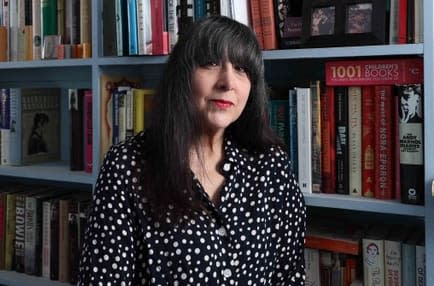It’s been 27 years since Lee Randall, a writer and book festival curator, moved to the UK. Now in her sixties and based in Scotland, she has called the UK home for more than a third of her life. She describes herself as “enmeshed” in British society and culture.
Yet there are still times when Randall – who grew up in Long Island, then lived in New Jersey and New York City before moving to Scotland to join her now ex-husband in her late thirties – feels cut adrift from her native America.
The last time she remembers that feeling was on 11 September 2001.
“When the twin towers went down, when that happened, I felt horrible that I was here and not there,” she says. “I wouldn’t have been able to do a damn thing to help anyone but I felt I should be at home where the hurting is happening – and because New York was just so important to me: it’s my city. But since then I haven’t felt the same pang,” she says.
In 2008, when Barack Obama was elected as president, she remembers “wandering around Edinburgh in a cloud of happiness”. Now Randall is watching another crucial election unfold from across the Atlantic, as the nation chooses between two very different political futures.
Whereas in the past she felt a sense of optimism about the future of the US, she is now pessimistic – and glad to be settled elsewhere. “My sense that people were cool and that things were going to improve was probably skewed by the fact that the people I knew were in New York. Perhaps if I’d been living and working anywhere else I would have been more alert to the dangers,” she reflects.
“But now I’m thinking what the hell has happened to my country? When did they lose their reason? When did they become, collectively, so stupid, racist and ridiculous?”
Randall believes that, despite the surge of support for the Democratic candidate Kamala Harris (and the huge success of her fundraising efforts in only a three-month campaign), Donald Trump is set to win his second term as US president in November’s election.
Two decades ago, when George W Bush was in the White House and the Iraq War caused division across the west, Randall was concerned about the US’s political influence on the world. Now, she says, “things feel much, much worse”.
Polls suggest that Harris has the edge, but Randall after previous political disappointments cannot allow herself to believe that she can win. “I didn’t think people could possibly be delirious enough to elect him [Trump] in 2016… my optimism is gone,” she says.
As a US citizen, Randall has the right to register to vote in the presidential election even while abroad, but as her former constituency is resolutely Democratic she hasn’t made the extra effort to register to vote this time, despite being pleased to see Biden step aside to make way for Harris.
She would like to feel hope around Harris’s chances of changing America for the better – “I think Harris is interesting, intelligent and smart and her running mate Tim Walz is a good communicator,” she says. “I think this guy knows how to deal with all kinds of people, so I think that was a very wise choice” – and supports her politics on health and social care, on schooling, and support for those with disabilities or other special needs.
But despite these progressive ideas and Harris’ surging poll ratings, Randall finds herself pulled back into pessimism by the forces of sexism and racism that are undermining her campaign. She explains: “Back when the choice was Hillary [Clinton] or Obama, knowing how deep the racism in the US was, I still knew that the misogyny was deeper. I just didn’t think she stood a chance. I think that misogyny has not gone away. The fact that Kamala is both Black and a woman is going to be an issue and it kills me that that is the truth.”
As a young woman, Randall marched on Washington DC in support of abortion rights and is scornful of those who claim to be ‘pro-life’ and yet seek to restrict women’s lives. She fears that under a second Trump presidency there will be further clamps on freedoms and rights for women, and is concerned that the result will be that women feel controlled by political forces which exclude them, “keeping women down and out of the workplace, in the shadows”.
To achieve a second victory in the race for the White House, Trump will require the votes of millions of US women. What explains the enthusiasm of so many women for a man whom fellow female citizen Randall can only bring herself to describe as “a despicable human being”? Women are conditioned to make choices that their male partners, family members and colleagues approve of, Randall says – and now this is showing up in US politics.
She explains: “I think women are often our own worst enemies. I think economics is one element, and I think that male approval is another element. If they fall in line of this it will then grant them the approval of the important man or men in their lives. I think it might possibly in more extreme cases be a way to stay safe because men can be dangerous.”
There is a lot at stake – not just on the domestic front but also the global stage. Though she predicts a Trump win, Randall worries intensely about what that would mean for resolution of conflict in the Middle East, future diplomatic relations with Russia and Europe and, perhaps most importantly, US policy on immigration. That a hard line on migration is a vote winner for both Republican and Democrats troubles her.
Randall is from a Jewish immigrant background, with three of her four grandparents born outside the US, and later became an immigrant herself on arrival in the UK. “I am baffled by people who freak out about this kind of thing. We’re all humans, we should be clutching each other’s hands and banding together, rather than othering each other,” she says.
It is a relief to be some distance from the epicentre of the vote for Randall, who is baffled by the way her fellow citizens have responded to Trump, the celebrity businessman turned politician. “He’s got no policies, he’s got nothing to offer the US except his larger than life character. He will lie and say anything, and people are eating it up with a spoon,” she sighs. “I do care about who wins this election, but because I am so pessimistic I am almost disassociating from it. I suspect I’m starting to feel a bit disengaged.”
Read more about the US election:
EMEA Tribune is not involved in this news article, it is taken from our partners and or from the News Agencies. Copyright and Credit go to the News Agencies, email news@emeatribune.com Follow our WhatsApp verified Channel




